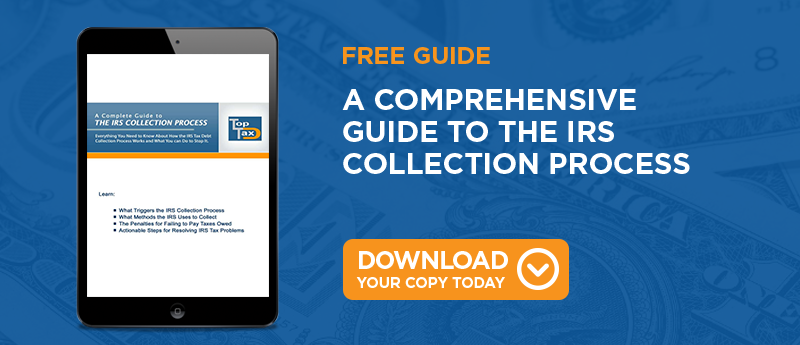
Did you know that the IRS has the authority to seize your assets if you owe back taxes? The Internal Revenue Service is one of the most powerful government agencies when it comes to seizing control of individual assets so it's wise for any taxpayer to understand the agency's authority and how it exercises asset seizure in cases of income tax debt.
How the IRS Seizes Assets
The IRS has the power to seize any asset you own or hold a mortgage on, including your cash reserves, your home, your property, your vehicles and your income. In many cases, the IRS can also act to seize investments and equipment. Since your monthly income is also considered an asset, the agency can make use of wage garnishment to take a portion of your regular income and apply it to your outstanding tax balance. Interestingly, the IRS also considers your future tax refunds to be assets and will withhold any refunds you are due in the future and apply the total to your debt.
If the IRS is considering using asset seizure in your case, you'll likely receive a Notice of Federal Tax Lien in the mail. This notice informs you that the agency is staking a claim on your property as a creditor, which gives them the authority to take the proceeds if you attempt to sell it. The IRS may also send you a Notice of Levy, which is a legal form that notifies you of the agency's intent to seize your assets if you do not make an effort to settle your account.
You Can Do to Avoid Asset Seizure
One of the most important ways to avoid having the IRS seize your assets is to begin working with the agency to settle account as quickly as you possibly can. Typically, the IRS begins the asset seizure process when taxpayers refuse to communicate with its representatives or take no steps to establish a repayment arrangement.
Once you start communicating with the agency, you'll have several tax repayment options. These include establishing an installment plan, requesting an offer in compromise or applying for penalty abatement. A qualified tax professional can help you decide which option is best for you. As a final resort you might consider bankruptcy which can protect you from asset seizure and other creditors.
If you owe a substantial income tax debt you need to learn about the asset seizure process that the IRS can institute. By preparing yourself, you can avoid this situation by making arrangements to repay your debt.




